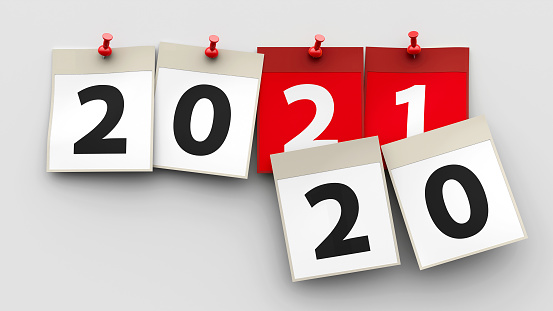
Tax Changes 2021
Amounts received related to COVID-19
If you received federal, provincial, or territorial government COVID-19 benefit payments, such as the Canada Recovery Benefit (CRB), Canada Recovery Sickness Benefit (CRSB), or Canada Recovery Caregiving Benefit (CRCB), you will receive a T4A slip with instructions on how to report these amounts on your return.
If you are self-employed and received federal, provincial, or territorial government COVID-19 assistance for your business, such as the Canada Emergency Wage Subsidy (CEWS), Canada Emergency Rent Subsidy (CERS), Canada Recovery Hiring Program (CRHP) or Fish Harvester Benefit and Grant Program (FHBGP), you have to include these amounts in your business income or reduce your expenses by the amounts you received. If you received a government loan, the loan is not taxable but you have to include in your business income any portion of the loan that is forgivable.
If you received the CRB, you may have to repay all or part of the amount received if your net income after certain adjustments is more than $38,000. The repayment is calculated using the chart for line 23500 of the Federal Worksheet.
If your income was tax exempt
If your CRB, CRCB, or CRSB income is eligible for tax exemption under section 87 of the Indian Act, complete Form T90, Income Exempt from Tax under the Indian Act, and file your 2021 Income Tax and Benefit Return or simplified return to claim the tax withheld on your CRB, CRCB, and CRSB payments. For more information, click here
Federal COVID-19 benefits repayment
If you repaid federal COVID-19 benefits (CERB, CRB, CRCB, CRSB or CESB) in 2021 that you received in 2020, the amount repaid will be reported in box 201 of your T4A slip, or on your T4E slip along with other employment insurance (EI) amounts repaid. You can choose to claim a deduction on your return for the repayment in the year that the benefit was received or in the year that the benefit was repaid. You may also choose to split the deduction between these two returns as long as the total deduction is not more than the amount repaid. For more information, see line 23210 on page 21 or go to canada.ca/repay-covid-benefits.
Canada workers benefit
The Canada workers benefit (CWB) rates and income thresholds have changed for 2021. A new “secondary earner exemption” has also been introduced.
Zero-emission vehicles
The definition of zero-emission vehicle has changed for vehicles acquired after March 1, 2020. A vehicle may still qualify as a zero-emission vehicle if the vehicle was subject to a prior capital cost allowance (CCA) or terminal loss claim provided that the vehicle was not acquired by the taxpayer on a tax-deferred "rollover" basis or previously owned or acquired by the taxpayer or a non-arm's length person or partnership.
Disability tax credit
The rules relating to the mental functions necessary for everyday life, life-sustaining therapy, and the calculation of therapy time would change.
Northern resident deductions
The deduction for travel benefits would change and be expanded to be available to eligible northern residents who take a trip even if their employer does not provide travel benefits for personal travel.
Postdoctoral fellowship income
Beginning in 2021, postdoctoral fellowship income would be included as earned income for registered retirement savings plan (RRSP) purposes. This change would provide postdoctoral fellows with additional RRSP contribution room in order to make deductible RRSP, pooled registered pension plan (PRPP), or specified pension plan (SPP) contributions. This measure would apply retroactively to 2011. If you reported postdoctoral fellowship income in a tax year after 2010 and before 2021, you could send an adjustment request to the CRA to have your RRSP contribution room adjusted.
Prince Edward Island
The dividend tax credit rate for non-eligible dividends has changed.
A new non-refundable children’s wellness tax credit has been introduced for all families with children under the age of 18 for eligible activities related to their children’s well-being.
You can claim up to $500 per child for fees paid in 2021 relating to the cost registration or membership for your (or your spouse’s or common law partner’s) child in a prescribed program of artistic, cultural, recreational, or developmental activity or a physical activity. The child must have been under 18 years of age at the start of the year during which fees were paid for an eligible activity related to the child well-being.
Ontario
Senior’s Safety Tax Credit
A refundable Ontario seniors’ home safety tax credit has been introduced for seniors and individuals who share a home with a senior relative. Complete Schedule ON(S12), Ontario Seniors’ Home Safety Tax Credit, to claim this credit. This is a temporary credit for 2021 only. You may be eligible for this credit if, at the end of 2021, all of the following conditions apply:
Eligible expenses are expenditures for improvements to the principal residence or to the land on which the principal residence is situated that:
The improvements must also be of an enduring nature and be integral to the home or land, or must be a modular or removable version of an item of a type that can otherwise be installed as enduring and integral to the home or land.
You can claim the lesser of $10,000 and the amount of eligible expenses that you, or someone on your behalf, paid related to your principal residence. If you occupied more than one principal residence at different times in 2021, eligible expenses you paid for one or more of those residences would qualify for the credit, but those expenses may not exceed $10,000.
Job Training Tax Credit
A refundable Ontario jobs training tax credit has been introduced for eligible individuals. This is a temporary credit for 2021 only. You may be able to claim this tax credit if all of the following conditions apply:
Manitoba
Teaching expense tax credit
You can claim up to $1,000 as an eligible supplies expense if both of the following conditions are met:
Eligible supplies expense
An eligible supplies expense is an amount that you paid in 2021 for teaching supplies that meet all of the following conditions:
Teaching supplies are consumable supplies and prescribed durable goods. Prescribed durable goods include:
Saskatchewan
Home Renovation Tax Credit
The Saskatchewan Home Renovation Tax Credit (HRTC) allows homeowners to claim a non-refundable tax credit on qualifying home renovation expenses. The total eligible expenses incurred between October 1, 2020 and December 31, 2021, must be in excess of $1,000 (base amount), but not more than $12,000 can be claimed on your 2021 tax return (maximum claim of $11,000 for 2021.
Claiming home renovation tax credit
The claim for eligible expenses is family-based. Eligible family members include you and your spouse or common law partner and your or your spouse’s or common-law partner’s children who are under 18 years of age at the end of year for which the credit is claimed. The claim can be split among eligible family members, but the total amount claimed cannot exceed the maximum allowable.
Eligible Expenses
Eligible expenses include the cost of labor and professional services, building materials, fixtures, equipment rentals, and permits. The costs of routine repairs and maintenance normally performed on an annual or more frequent basic are not eligible.
Examples of eligible expenses generally, in addition to projects you do yourself, work performed by electricians, plumbers, carpenters, architects, etc. in respect of an eligible expense qualifies for the HRTC.
The following items are examples of eligible expenses:
Note : If an eligible expense qualifies for medical expense amounts, you can claim both the medical expenses and the HRTC for that expenditure
The following items are examples of ineligible expenses:
Supporting documents
Eligible expenses must be supported by acceptable documentation, such as agreements, invoices, and receipts, and must clearly identify the type and quantity of goods purchased or services provided.
Active Families Benefit
Saskatchewan’s budget for 2021 announced the restarting of the Active Families Benefit (AFB) for families with children enrolled in sport, recreation and cultural activities. Families can claim this refundable tax credit for 2021 and subsequent tax years.
Eligibility
An eligible individual who is a resident in Saskatchewan on the last day of the taxation year can claim this refundable tax credit up to a maximum of $150 per eligible child who is 18 years of age or less for the costs of participation in an eligible activity. If an eligible child is eligible for the disability tax credit, an additional $50 can be claimed.
Eligible activity
In order for an activity to be eligible for the Active Families Benefit, it must take place within a program that:
For more information please click here.
Posted on 21 Dec 2021


